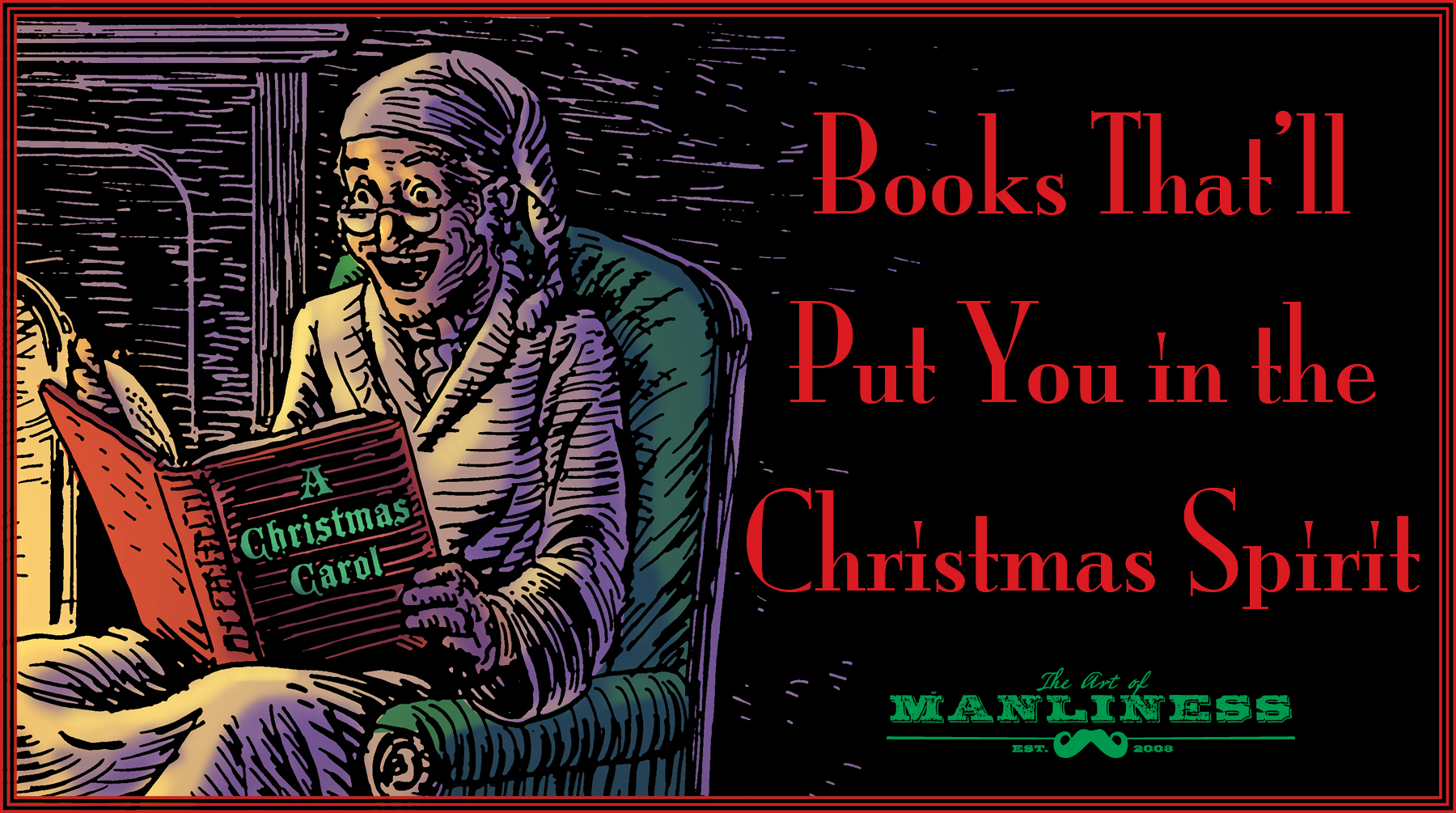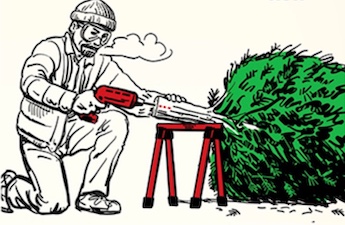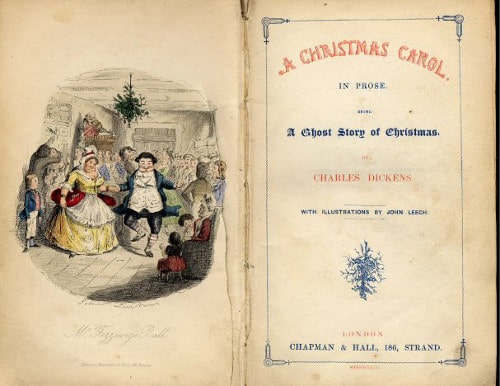
The name of Ebenezer Scrooge has become synonymous with miserliness, greed, grumpiness…all those things you don’t want to be. It’s really too bad, and Scrooge gets an unfair treatment in my opinion, because at the end of A Christmas Carol, he’s changed his ways and become a whole new man. The story should be remembered more for that — for the hope that a man can mend his ways and change his spirit — than for the coldness old Scrooge displays at the outset.
Author Charles Dickens wrote in a preface to the short novel that his intent in writing was “to awaken some loving and forbearing thoughts.” After going through the text for the AoM Book Club, the following questions sort of naturally arose as I was thinking about it. Hopefully we can use these as a reflection for the Christmas season to be able to awaken some of those loving thoughts that Dickens was eager to find.
Do you carry a “low temperature” about you?
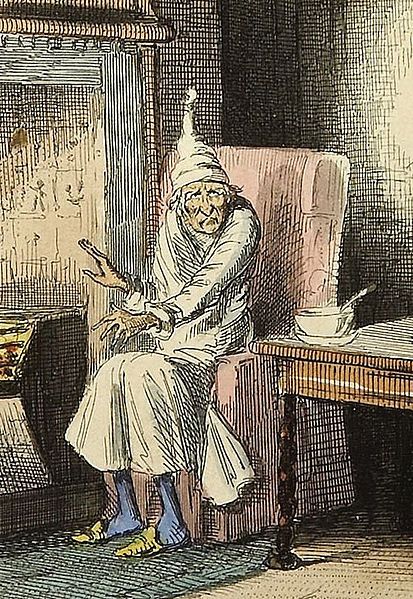
In the first pages of this classic tale, Dickens describes the character of Mr. Ebenezer Scrooge. He was tight-fisted, secretive, solitary…and a bunch of other adjectives that are generally unpleasant. But the description that most stood out to me was that “he carried his own low temperature always about with him.” Yes, it was cold outside in London around Christmastime, but Scrooge carried a permanent coldness within him, no matter the time of year. He did not possess the trait of warmth — didn’t empathize, or console, or listen.
Can you relate? Do you have a bit of a cold demeanor? When I asked this question of the book club, every man responded that they did in fact have times of carrying a low temperature. Some more than others, but surely every man can relate from time to time. There’s no avoiding periods of coldness in our lives, it’s just a matter of recognizing, diagnosing, and correcting it. So maybe the better question, besides just asking if you have a low temperature, is why? And how can we move forward? The prognosis is in fact more important than the simple diagnosis. Is your coldness due to circumstances? Is it due to hurt feelings? Maybe you can’t really describe it, in which case you may need ritual in your life or to find one of the “switches” of manliness that you’re missing. Once you’re aware of your condition, you can change and move forward. Which is exactly what Mr. Scrooge did, but we’ll get more into that in just a bit.
What have you lost in the pursuit of Gain?

Many people see the tale of Scrooge and the three ghosts as a lesson about money and greed. While that’s certainly part of it, I’m not sure that’s the main takeaway that Dickens intended. In the visit from the Ghost of Christmas Past, we observe a conversation between Scrooge and his then girlfriend. She comes to tell him that he’s changed — he now measures everything by Gain. “You fear the world too much. All your other hopes have merged into the hope of being beyond the chance of its sordid reproach. I have seen your nobler aspirations fall off one by one, until the master-passion, Gain, engrosses you.”
The capitalization of the word tells us that perhaps it means more than just monetary gain. What we see in Scrooge’s interactions with people at the beginning and in the visit from this ghost is that he weighs all his actions and interactions by what he’ll get out of it. And if he doesn’t benefit directly, he becomes a miser. It’s said in the text that on the day of his former business partner’s funeral (something that surely wouldn’t have benefit for Scrooge), he remained a good businessman and did it on the cheap. While outwardly about money, it’s really about the fact that he had no room in his day for anything other than his own interests.
Our own interests extend beyond padding our wallets to include status, ego, and pride. We may want to rise to the top of the class and land a prestigious job, sculpt the perfect physique, be seen as the most righteous dude at church, or live a more extraordinary life than our friends by spending our time traveling the globe. There’s nothing inherently wrong with such pursuits; the danger lies in pursuing them with a single-mindedness that snuffs out our “noble aspirations.” Your dream of being a teacher withers as you miserably slog through law school; your lack of humility at church prevents real spiritual growth; your girlfriend feels neglected because you spend so much time at the gym; your friends are alienated by your need to make them feel jealous by constantly posting pics of your latest trip on Facebook. It feels so good to Gain, to move up any kind of ladder — even those we don’t recognize as such — that we become blind to the fact that we are more motivated by status and the desire to feel superior to others than we are by genuine interest in the pursuit. In fact, despite how much focus and time we lend to such pursuits, we may not even be enjoying them — they become, or have always been, a matter of checking off boxes of things we think we “should” do and should make us happy. Ultimately, our desire for status becomes the single prism through which we measure everything, leaving no time for friends, family, and service and leading to a life that is unbalanced, empty, and ultimately unsatisfying.
Periodically we all need to check in with ourselves to evaluate what we have lost in seeking after Gain. Regularly ask yourself, “Why am I doing this?” and, “Would a more balanced life actually make me happier?”
What right have you to be dismal?
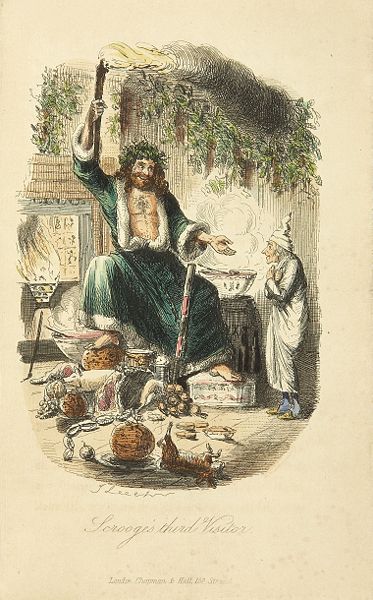
Perhaps my favorite scene in the book is a short interaction between Scrooge and his nephew Fred.
[Scrooge] What right have you to be merry? What reason have you to be merry? You’re poor enough.
[Nephew] What right have you to be dismal? What reason have you to be morose? You’re rich enough.
Scrooge thinks that merriness is based on circumstances. His nephew is poor, so why on earth should he be happy? But then Fred points out the fallacy of the question (and assumption) by pointing out that if the sentiment were true, then Scrooge should be the happiest man of all. So, does Scrooge relent and admit that circumstances don’t make one’s merriment? Not really, as he follows up by saying, “What else can I be when I live in such a world of fools as this?”
Don’t we all feel this way sometimes? It’s hard to watch the news (or heck, even the trolls on twitter and in the AoM comments) and not just throw our hands in the air and be miserable about the state of the world. What’s funny about this is that Dickens clearly observed this same attitude almost exactly 170 years ago. It’s not just now that our “world has gone to crap” — it’s always been this way. If you think life would’ve been better 100 years ago without the trolls of the internet, you’re wrong. There were still trolls, they were just yelling at you from street corner soapboxes instead of internet comment sections.
There will always be reasons to have a dismal attitude or outlook. If you’re waiting for life to be perfect before you cheer up, you’re bound to go through life as a Scrooge. While we often let our circumstances be the source of our mood, we don’t have to. Joy can be found in any situation, as is beautifully illustrated in this passage about the Cratchit family:
“They were not a handsome family; they were not well dressed; their shoes were far from being water-proof; their clothes were scanty; and Peter might have known, and very likely did, the inside of a pawnbroker’s. But they were happy, grateful, pleased with one another, and contented with the time.”
Do you have laughter in your life?
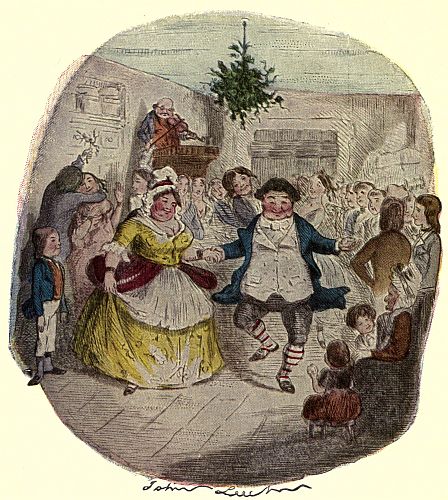
“It is a fair, even-handed, noble adjustment of things, that while there is infection in disease and sorry, there is nothing in the world so irresistibly contagious as laughter and good-humour.”
In the last few months, I’ve come to observe that the relationships and people I enjoy the most are those with whom I laugh the most. There is an ineffable quality about the power of laughter on one’s spirit, and yet there’s also much research into the psychology of it. Laughter has literally been shown to be one of the best medicines. Its physical, emotional, and social benefits are too numerous to list in this post in their entirety, but laughter really can cure stress and physical pain, smooth conflict between people, and help relax both mind and body.
Feeling tense? Pull up your favorite YouTube video or watch an episode of Seinfeld. Are you having trouble connecting with your wife or girlfriend? Go see a comedy at the theater and you’ll almost certainly feel better. Lying in bed sick? Listen to some Louis CK on your phone — laughter has been shown to boost your immune system. Most of all, when things in your life go awry, have a sense of humor about it and surround yourself with people who can help you laugh it off.
Not only does laughing do a body and soul good, if you’ve got that “low temperature” that we talked about above, it’s a foolproof method for turning up your emotional thermostat.
Do you believe you can change?
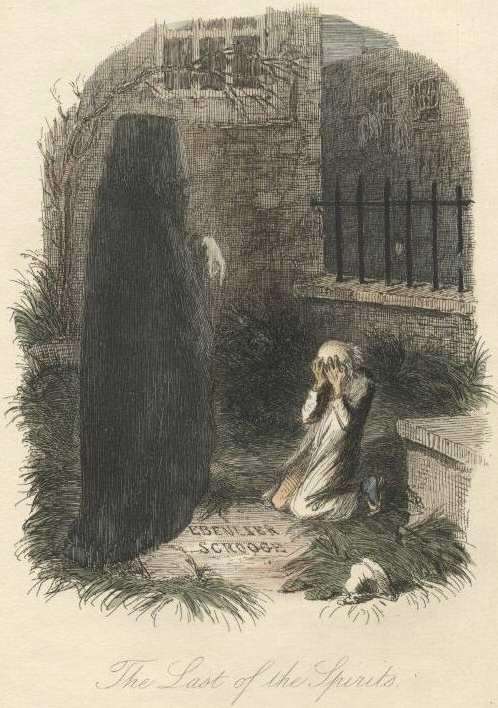
In the film and theatrical versions of A Christmas Carol, you can get the sense that the ghosts are doing all the work in changing Scrooge’s grim attitude. In the book, however, you can see the full range of his thoughts and how they’re changing as he encounters the three spirits. What was interesting to me was that almost from the beginning, once aware of his low temperature, Scrooge had the mindset and willingness to change. He didn’t fight it. He said multiple times that he would heed the lessons of the ghosts and try to soak up every word of advice.
We can’t be forced to change our ways. We have to buy into it ourselves. Sure, there’s often a catalyst (although it probably won’t be ghosts), but ultimately we’re responsible for changing. We can be visited by 100 ghosts, but if we never take their lessons to heart, our Scrooginess won’t go away. Our pride tells us to never change, to hold onto our metaphorical guns as long as we can, even if proven wrong, just for the sake of maintaining our inflated vision of ourselves. At some point, you have to suck it up, admit that you’ve made some mistakes, and be open to change. Had Scrooge not been willing, the story wouldn’t have worked.
How can you harness the Christmas spirit of joy throughout the year?
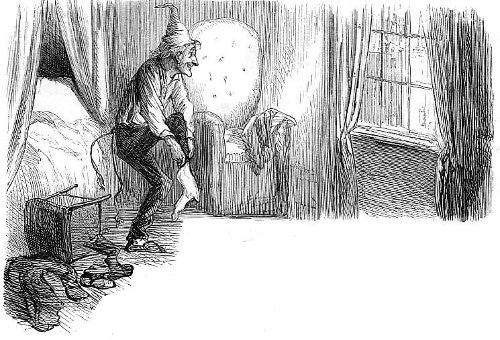
I leave you with this final question. At the end of the tale, Scrooge declares, “I will honour Christmas in my heart, and try to keep it all the year.” Even when stress is highest and temperatures outside chilliest, there’s something about Christmastime that brings joy and generosity to otherwise mundane moments. Find ways to harness that attitude throughout the year, and you’ll be a better man for it.


